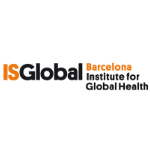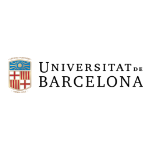COVID-19 Rapid Response Innovation Project
Identifying protective immunity to SARS-CoV-2 in Health Care Personnel
The challenge
We still cannot definitively determine whether someone who has had COVID-19 has developed immunity to the SARS CoV-2 virus. The benefits of being able to identify individuals with immunity include the ability to allow protected healthcare personnel to work in environments where they are likely to be exposed to the virus, such as intensive care units with COVID-19 patients. Several types of serological assays – tests for certain markers in the blood – are currently being developed to identify individuals who have recovered from COVID-19. But the accuracy of these assays is below 90%, and it is still not clear which types of assay can truly predict functional protection against the disease.
The solution
This project will involve a study of healthcare personnel, who volunteer to participate, to identify the actual immunity of those workers and compare it with the projections of the many studies on immunity that are currently underway. The project team will collect blood samples from healthcare personnel who have tested positive for SARS CoV-2 and follow their health status for 6 months. Their blood will be tested for various antibody markers that are currently being used by different research teams to develop assays for COVID-19 immunity. By comparing blood content with the actual health of the individuals involved, it will be possible to determine which types of assays measure truly protective immunity.
Expected impact
Identifying true markers of protective immunity will allow for the identification of individuals protected from re-infection. The primary beneficiaries would be healthcare personnel, who would know whether they are safe in environments with a high risk of exposure, and society will benefit from maintenance of a functioning healthcare workforce. Identifying the assays that truly determine immunity will also make it possible to allow large portions of the population to return to economic activity. In addition, the validated assays can be used in future vaccine trials, to determine the effectiveness of experimental vaccines.
All Partners
EIT Health members
- Technische Universität München (TUM)
- Fundación privada Instituto de Salud Global Barcelona (ISGLOBAL)
- University of Barcelona
External partners
- Mikrogen
Members

CLC/InnoStars: Germany
Partner classification: Education, Research, Tech Transfer, Clusters, Other NGOs, Hospital / University Hospital
Partner type: Core Partner
TUM is one of Europe's top Universities. It is committed to excellence in research and teaching, interdisciplinary education, and the active promotion of promising young scientists.
Technische Universität München (TUM)
Technische Universität München (TUM), Arcisstraße 21, 80333 München, Germany
Key Activities in Research and Developement
Biomedical engineering, Life Sciences, Social sciences / health economics, Clinical research
Key Activities in Business Creation
Incubation, Technology Transfer
Key Activities in Education
Entrepreneurship training, Technical faculties, Medical faculties


CLC/InnoStars: Spain
Partner classification: Research
Partner type: Linked/Affiliated Party
Fundación privada Instituto de Salud Global Barcelona (ISGLOBAL)
Fundación privada Instituto de Salud Global Barcelona (ISGLOBAL), Carrer del Rosselló, 132, 08036 Barcelona, Spain
Key Activities in Business Creation
Testing & Validation
Key Activities in Education
Medical faculties, Healthcare professional education/training


CLC/InnoStars: Spain
Partner classification: Academic, Education, Research
The University of Barcelona is the most intensive university in research in Spain. Our university has a great capacity for innovation in various fields, of which the health sector stands out both due to the amount and the quality of the outcomes produced by faculties such as the Faculty of Medicine and Health Sciences, the Faculty of Pharmacy and Nutrition or the Faculty of Psychology. Our activity within the EIT Health projects is often enriched and sometimes dominated by the technology and/or knowledge created in the Faculties of Biology, Chemistry, Physics, Mathematics and Computer Science or even Fine Arts. We have also several Research Institutes that merge multidisciplinary teams working on topics as diverse as Neuroscience, Complex systems, Biomedicine, etc. as well as a couple of Technology Transfer Institutes such as CREATIO https://www.ub.edu/creatio/en/, the first Academic Center for the Production and Validation of Advanced Therapies in Spain, and Farmatec http://www.ub.edu/sdm/in_index.htm, a Service of Development of Medicines under GMP regulation
University of Barcelona
University of Barcelona, Gran Via de les Corts Catalanes, 585, 08007 Barcelona, España
Key Activities in Research and Developement
https://web.ub.edu/en/research
Key Activities in Corporate Innovation
https://web.ub.edu/en/the-university
Key Activities in Business Creation
https://startub.ub.edu/en/community/incubated-companies/
Key Activities in Education
https://web.ub.edu/en/learn
